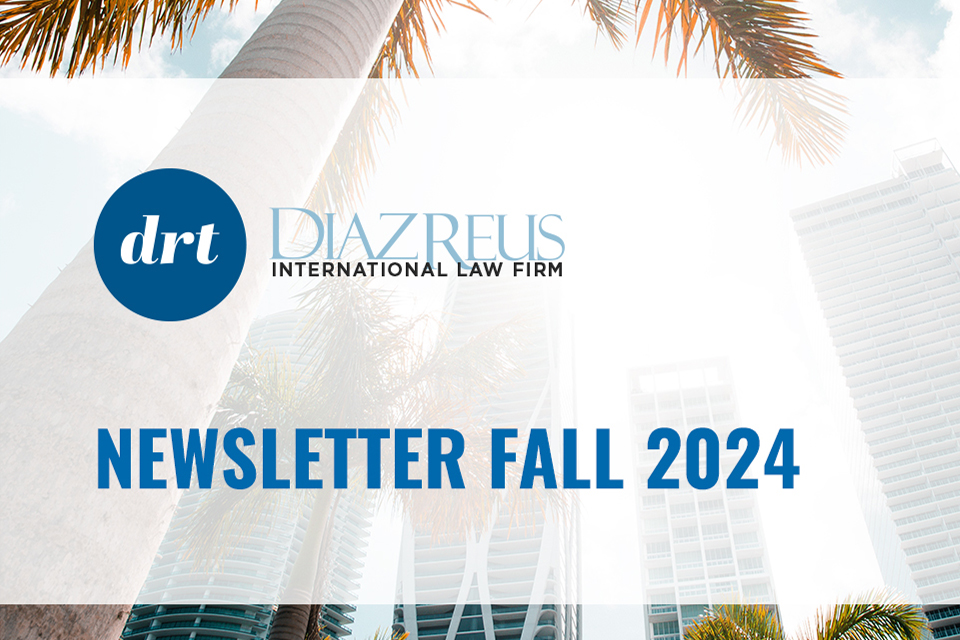On April 15, 2021, the U.S. President signed an Executive Order “Blocking Property with Respect to Specified Harmful Foreign Activities of the Government of the Russian Federation” (the “E.O.”). In it, the U.S. President declared a new national emergency under which economic sanctions may be imposed against individuals and entities (i) undermining the conduct of free and fair democratic elections and democratic institutions in the U.S. and its allies and partners; (ii) engaging in and facilitating malicious cyber-enabled activities against the U.S. and its allies and partners; (iii) fostering and using transnational corruption to influence foreign governments; (iv) pursuing extraterritorial activities targeting dissidents or journalists; (v) undermining security in countries and regions important to U.S. national security; and (vi) violating well-established principles of international law such as respect for the territorial integrity of states.
On the same date, Treasury Department’s Office of Foreign Assets Control (“OFAC”) invoked its new authority under the E.O. to sanction certain Russian Intelligence Services, as well as a number of technology companies supporting Russian Intelligence Services. As well, OFAC sanctioned several Russian officials, proxies, and intelligence agencies for interfering with the 2020 U.S. presidential election.
Pursuant to the E.O., OFAC also issued a new Directive – “Directive 1 under E.O. of April 15, 2021” – prohibiting U.S. financial institutions to conduct certain activities as of June 14, 2021, such as (i) participating in the primary market for ruble or non-ruble denominated bonds issued after June 14, 2021 by the Central Bank of the Russian Federation, the National Wealth Fund of the Russian Federation, or the Ministry of Finance of the Russian Federation; and (ii) lending ruble or non-ruble denominated funds to the above mentioned Russian entities.
Lastly, on April 15, 2021, pursuant to Executive Orders 13660 and 13685 of 2014, OFAC sanctioned five individuals and three entities for asserting governmental authority over the Crimea region of Ukraine without the authorization of Ukraine, and/or participating in human rights abuses against Ukrainians.
DRT Commentary
Consequences of These Additional Sanctions
Individuals and companies sanctioned by OFAC are added to the List of Specially Designated Nationals and Blocked Persons (“SDN List”). Accordingly, all of their property within or transiting U.S. jurisdiction is blocked. In addition, if they are not authorized by a general or specific license issued by OFAC, U.S. persons or foreigners that conduct business in or with the U.S., U.S. persons, or using U.S.-origin goods or services are prohibited from engaging in transactions with individuals and companies sanctioned under the Executive Orders or with entities in which they have, directly or indirectly, 50% or greater ownership interest.
Individuals and entities found to be in violation of OFAC sanctions, whether U.S. or foreign, will be exposed to significant civil and criminal penalties, and may themselves be added to OFAC’s SDN list through the enforcement of secondary sanctions.
Preventing Violations of Russia-Related Sanctions
Conduct an OFAC review of any transaction involving Russia to confirm whether you need OFAC’s authorization to proceed. If necessary, request OFAC’s specific license or interpretative guidance. In addition, organizations can prevent, detect, and react appropriately to violations of OFAC Sanctions by designing and implementing Sanctions Compliance Programs (“SCP”). Having an effective SCP in place is also a significant mitigating factor that OFAC will consider when deciding whether to impose sanctions based on an apparent violation of its regulations, or for calculating the appropriate penalty.
Legal Options for Sanctioned Individuals and Entities
Anyone placed on the SDN List by OFAC under GLOMAG has the right to seek removal under an administrative process known as “De-Listing.” To be removed, listed individuals and entities must file a written request with OFAC showing that an insufficient basis exists for OFAC’s sanctions, or that the circumstances resulting in OFAC’s sanctions no longer exist.
After a De-listing request is submitted, OFAC may request additional information before rendering a written decision. If the request for De-Listing is granted, the person’s name, along with related identifying information, are removed from the SDN List. And, if OFAC denies the De-Listing request, administrative remedies are deemed exhausted and listed individuals and entities can subsequently file a civil action with a U.S. District Court seeking judicial review of OFAC’s actions under the Administrative Procedure Act. In such a civil action, sanctioned individuals or entities may argue that OFAC’s action should be reversed on grounds that it was arbitrary, capricious, an abuse of discretion, or otherwise not in accordance with law.
Info: Michael Diaz, Jr., Javier Coronado


















































































![Especial abogados Salón de la Fama[61] 4](https://diazreus.com/wp-content/uploads/2023/06/Especial-abogados-Salon-de-la-Fama61-4-pdf.jpg)


























































































































































































